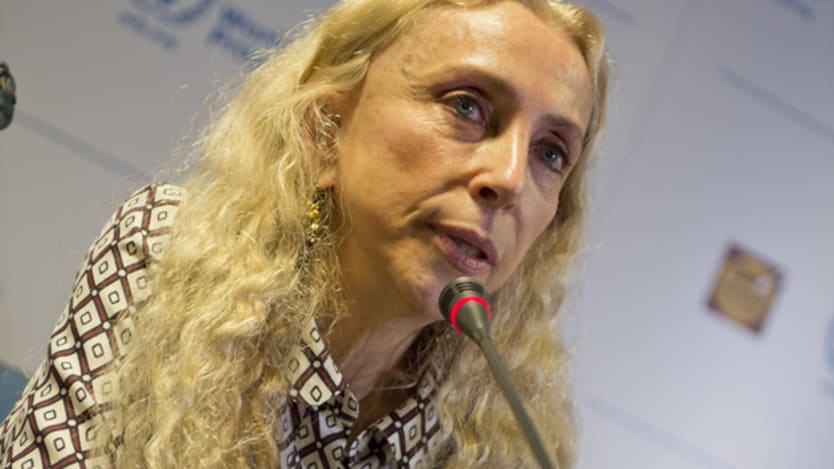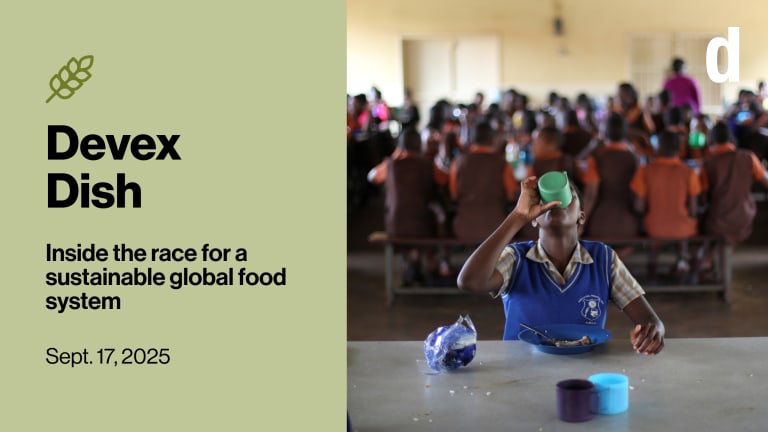
Time magazine dubs her “fashion's rebel with a cause.” As editor of the trend-setting Vogue Italia, Franca Sozzani was never apologetic when using the pages of her publication to champion a cause, such as anti-slave trade and environmental protection.
Now, Sozzani is tackling global hunger. In early May, the World Food Program named her an ambassador; next month, she’ll fly to West Africa on her first field mission.
Sozzani is also an ambassador for Fashion4Development, a global partnership between the fashion industry and the United Nations aimed at advancing the Millennium Development Goals. In her role, she sought not only to raise awareness but also build partnerships.
“The point is the sustainability of these projects. I am not scared about fundraising,” she tells Devex. “What scares me is project sustainability. Otherwise, it’s one-spot and then, what’s the result?”
After her appointment with WFP, Sozzani spoke with Devex about what role fashion can play in promoting social change.
What is the relationship between food and fashion?
Nowadays, everything is intertwined. When we talk about food and fashion, we talk about style of life. It encompasses everything. Everything is complementary — food, cinema, art, music. The mutual connection is enormous.
You are engaged in many charitable causes. Why hunger?
No person can live without nourishment, and food and water are the two fundamental elements for survival.
When I came here [to WFP], they showed me the situation, the important programs in place, not just in emergencies, but how to feed 90 million people per year as well as projects to help women become independent, helping them become farmers as entrepreneurs and not as manual laborers.
Women and jobs are issues that are close to my heart particularly. If you give a job to a woman, you give her dignity. Whether in big cities or small villages, a woman who works, feeds her children and can take care of her family has a dignity. … Creating job opportunities through agriculture or fashion is the same for me: It’s giving a job.
You have helped raised awareness about WFP. What do you think are some of the innovative ways to fundraise and boost public awareness about global development?
Over the past few years, doing things beyond fashion, I understood, for instance, that if you have a disease like cancer, that’s seen as a tragic accident, but if you have AIDS, you did it to yourself. The attitude toward countries where hunger is present is that that there is nothing you could do because they are unstable, always in war. That’s often people’s reaction. Those are the challenges we have to overcome.
When I released the first issue of Vogue on Africa, with [Nelson] Mandela and Bernard-Henri Lévy, everything about Africa is seen negatively. Then, after four years, I thought that if we continue delivering negative messages, that’s just what people will take in. So, we released the issue called “Rebranding Africa,” which highlighted everything’s that positive, about young fashion designers, artists, musicians [in the continent]. A few years ago, Africa was just deaths from famine, something that doesn’t affect us [here in Europe]. Now, people are more committed to [change perception of Africa].
Join the Devex community and access more in-depth analysis, breaking news and business advice — and a host of other services — on international development, humanitarian aid and global health.








